This morning (May 18), the Politburo and the Secretariat held a national conference to disseminate and implement Resolution No. 66-NQ/TW, dated April 30, 2025 of the Politburo on innovation in law-making and enforcement to meet the requirements of national development in the new era and Resolution No. 68-NQ/TW, dated May 4, 2025 of the Politburo on private economic development.
At the Conference, National Assembly Chairman Tran Thanh Man presented the topic "Key and core contents of Resolution No. 66-NQ/TW, dated April 30, 2025 of the Politburo on innovation in law-making and enforcement to meet the requirements of national development in the new era and the plan to implement Resolution No. 66-NQ/TW".
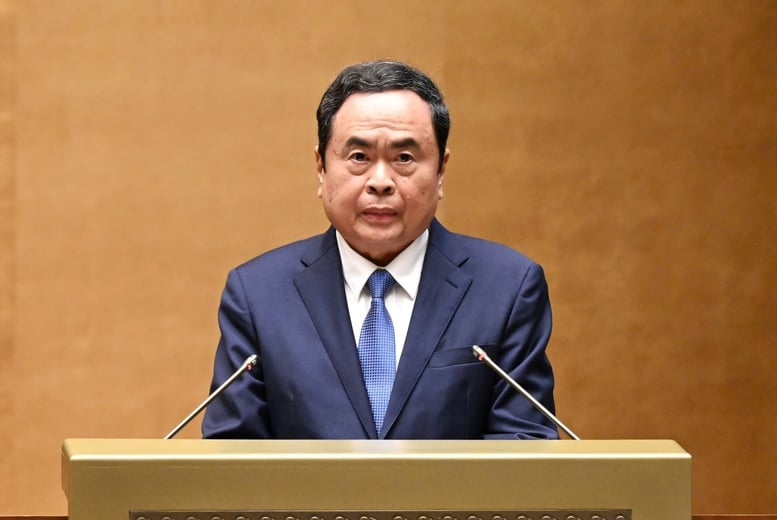
National Assembly Chairman Tran Thanh Man presented a topic at the National Conference to disseminate and implement Resolution No. 66-NQ/TW - Photo: VGP/Nhat Bac
The issuance of Resolution 66-NQ/TW is an objective requirement of the innovation process.
According to National Assembly Chairman Tran Thanh Man on April 30, 2025, General Secretary To Lam, on behalf of the Politburo, signed and issued Resolution No. 66-NQ/TW on innovation in law-making and enforcement to meet the requirements of national development in the new era.
The Central Steering Committee on institutional and legal improvement was established immediately after the Resolution was issued by the Politburo, with the General Secretary as Head; the Prime Minister and the National Assembly Chairman as Deputy Heads; other members are Heads of a number of Party Committees, Chairman of the Central Committee of the Vietnam Fatherland Front, Heads of a Ministry, branch, or agency, demonstrating the determination of the Party and State in successfully implementing the Resolution.
This is an event of special significance, marking a turning point in thinking and action regarding the work of building and enforcing laws in our country.
On May 19, 2025, the National Assembly also passed a Resolution on a number of special mechanisms and policies to create breakthroughs in the work of building and organizing law enforcement to promptly institutionalize the decisions of Resolution 66, immediately remove obstacles and inadequacies in financial mechanisms, ensure high-quality human resources as well as meet the requirements of modernization and digital transformation in the work of building and enforcing laws.
National Assembly Chairman Tran Thanh Man affirmed that the issuance of Resolution 66-NQ/TW is an objective requirement of the innovation process, aiming to create a breakthrough in improving the quality and effectiveness of law-making and enforcement to meet development requirements in the new era of national prosperity.
This is reflected in factors such as: Our country is entering a new stage of development, with higher requirements on legal institutions to successfully achieve the goal of becoming a developing country with modern industry and high average income by 2030 and a developed country with high income by 2045 according to the Resolution of the 13th National Party Congress. This requires a modern, synchronous and feasible legal system.
The Fourth Industrial Revolution, digital transformation, green economic development, and circular economy are taking place strongly, posing new and complex legal issues that need to be studied and adjusted promptly.
Deep international integration, especially Vietnam's participation in many new-generation free trade agreements, requires the domestic legal system to be compatible with international commitments and advanced international practices.
The work of building and enforcing laws in recent years has had many limitations and shortcomings, failing to meet the requirements of national development and not truly becoming a driving force for innovation and development.
"The Resolution is the concretization of the Party's guidelines and policies on building and perfecting the Socialist Rule of Law State of Vietnam of the People, by the People, for the People stated in the Resolution of the 13th National Congress and important resolutions of the Party, especially Resolution No. 27-NQ/TW dated November 9, 2022 on continuing to build and perfect the Socialist Rule of Law State of Vietnam in the new period", National Assembly Chairman Tran Thanh Man affirmed, adding that in practice, the Resolution comes from the urgent need to overcome shortcomings and limitations in the work of building and enforcing laws; from the need to improve national competitiveness; from the need to unblock and liberate all resources for development and from the legitimate aspirations of people and businesses for a transparent, fair and effective legal environment.
Thoroughly understand the 5 guiding principles
According to National Assembly Chairman Tran Thanh Man, Resolution 66-NQ/TW clearly states that, in order to meet the requirements of national development in the new era, the work of building and enforcing laws must thoroughly grasp five guiding viewpoints.
Specifically, first, it is necessary to ensure the comprehensive and direct leadership of the Party in the work of law-making and to strengthen the Party's leadership in the work of law enforcement. This viewpoint affirms a fundamental principle in the work of law-making and law enforcement in our country: to ensure the leadership of the Party, and at the same time to promptly and fully institutionalize the Party's guidelines and policies into laws.
The development and enforcement of laws must balance the need for stability with innovation, between meeting practical needs and complying with objective principles, laws and development trends of the times. It is necessary to strengthen control over power; prevent corruption, waste, negativity, group interests, local interests; prevent and stop all manifestations of profiteering and policy steering.
Second, it is necessary to identify the work of building and enforcing laws as the "breakthrough of breakthroughs" in perfecting the country's development institutions; fundamentally, comprehensively and synchronously innovate the work of building and enforcing laws to meet the requirements of building and perfecting the Socialist Republic of Vietnam's rule of law state, in line with the Party's innovation policy; identify this as the central and breakthrough task of the entire political system.
This viewpoint emphasizes the need for a comprehensive change in both the mindset and the way of implementing the work of building and enforcing laws. These are not small, separate reforms but a fundamental, comprehensive, and synchronous innovation, from the stage of policy making to the building, promulgation, and organization of law enforcement.
This is a key, breakthrough task of the entire political system, not just the responsibility of state agencies. All levels, sectors, and organizations in the political system must participate and join hands to carry out this task.
Third, law-making must closely follow reality, "stand on the practical land of Vietnam", selectively absorb the quintessence of human values, turn institutions and laws into competitive advantages, solid foundations, and strong driving forces for development, creating room to promote "double-digit" economic growth in the coming time, improve people's lives, and ensure national defense, security, and foreign affairs.
This viewpoint requires that the work of building and enforcing laws must truly originate from the common interests of the country, the legitimate and legal rights and interests of the people and businesses; ensuring transparency, publicity, objectivity, feasibility, accessibility, effectiveness, efficiency, and suitability with practical conditions and the level of socio-economic development of the country.
In the work of law-making, it is necessary to focus on thoroughly, substantially and scientifically implementing activities of summarizing, surveying practices, proposing policies, and assessing policy impacts; strictly implementing the mechanism of receiving and explaining contributions; not making it difficult for people and businesses in designing policies and developing legal regulations.
Fourth, it is necessary to improve the effectiveness of law enforcement, focus on building a culture of law compliance, ensure respect for the Constitution and the law, and ensure close connection between law making and law enforcement.
Fifth, clearly define investment in policy and law making as investment for development. The State ensures and prioritizes resources and has specific and superior regimes and policies for strategic research, policy making, law making and the human resources directly and regularly performing these tasks.
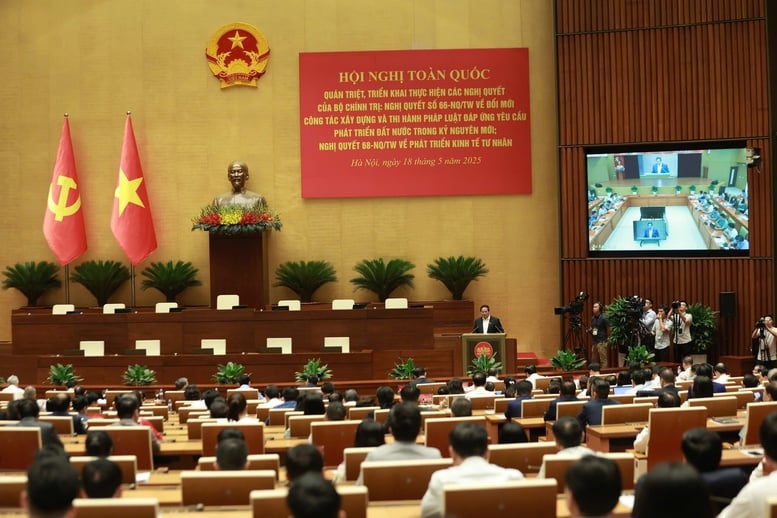
National conference to disseminate and implement Resolution No. 66-NQ/TW - Photo: VGP/Nhat Bac
Perfecting the transparent and professional legislative process
The Resolution sets out medium- and long-term goals for law-making and enforcement, closely following the requirements and timeline for implementing the two 100-year strategic goals set by our Party.
Accordingly, by 2030, Vietnam will have a democratic, fair, synchronous, unified, public, transparent, and feasible legal system with a strict and consistent implementation mechanism, paving the way for development creation, mobilizing all people and businesses to participate in socio-economic development so that by 2030, Vietnam will be a developing country with modern industry and high average income.
By 2045, Vietnam will become a developed, high-income country with a high-quality, modern legal system, approaching advanced international standards and practices and suitable to the country's reality, implemented strictly and consistently; respect for the Constitution and the law will become the standard of conduct for all subjects in society.
At the same time, to ensure implementation with a roadmap, steps, focus, and key points, and to ensure feasibility, the Resolution clearly defines specific goals for the immediate stages and for the term of the 16th National Assembly.
In order to continue promoting the achieved results, overcome shortcomings and limitations, and based on the guiding viewpoints and set goals, the Resolution identifies 7 groups of tasks and solutions that need to be focused on in the coming time.
In particular, the Resolution affirms that building and enforcing laws is a key task of building a socialist rule-of-law state, which needs to be carried out under the comprehensive and direct leadership of the Party.
At the same time, the Resolution emphasizes the need to perfect the transparent, professional legislative process and publicly disclose comments, not creating difficulties for people and businesses.
In particular, for laws that mainly serve the development of a socialist-oriented market economy, the Resolution requires minimizing business conditions and reducing compliance costs; ensuring freedom of business, property ownership rights and equality among economic sectors; considering the private economic sector as the most important driving force of the economy, creating conditions for private enterprises to easily access capital, land and high-quality human resources.
Resolution 66-NQ/TW also requires that law enforcement must be innovative. Laws must be enforced fairly, strictly, consistently and promptly, always closely linked to the law-making process.
The resolution requires promoting the spirit of serving the people of civil servants, ensuring the viewpoint that "people and businesses are allowed to do anything that is not prohibited by law". Law enforcement prioritizes promoting socio-economic development, science and technology, innovation and digital transformation, while focusing on essential areas such as food safety, environmental protection and cyber security.
Regarding the implementation plan, Resolution 66-NQ/TW of the Politburo clearly defines the responsibility for organizing the implementation of the Resolution of Party committees and agencies at all levels, including the National Assembly Party Committee, the Government Party Committee, the Vietnam Fatherland Front, the Central Propaganda and Education Commission, the provincial and municipal Party committees directly under the Central Government, and the Party Committee of the Ministry of Justice.
Based on the groups of tasks and solutions set out in the Resolution, the National Assembly Party Committee and the Government Party Committee have issued programs and action plans to implement Resolution No. 66-NQ/TW, comprehensively identifying the contents and tasks that need to be deployed and coordinated for implementation, including the following key tasks: Institutionalizing the Party's policy on amending and supplementing a number of articles of the 2013 Constitution and related laws to continue to reorganize the apparatus of the political system.
Develop and promptly complete the promulgation of laws and detailed regulations, guiding the implementation of laws in other necessary fields, meeting practical requirements.
Implementing innovation in legislative thinking, in the construction, revision and completion of draft laws submitted to the National Assembly for approval, the Party Committee of the National Assembly closely coordinates with the Party Committee of the Government and relevant agencies to focus on ensuring the principle that some codes and laws regulating human rights, civil rights and judicial proceedings need to be specific. Basically, other laws, especially laws regulating the contents of development creation, only regulate framework issues and issues of principle under the authority of the National Assembly. As for practical issues that frequently change, the Government, ministries, branches and localities are assigned to regulate them to ensure flexibility and suitability with reality in order to ensure that the provisions of the law are stable, simple and easy to implement.
At the same time, it is important to ensure that legal provisions promote decentralization and delegation of power; take people and businesses as the center, not making it difficult for people and businesses in policy design and law making; law making must originate from the overall interests of the country, resolutely abandoning the mindset of "if you can't manage, then ban"; promote democracy, respect, ensure and effectively protect human rights and civil rights.
"To achieve the breakthrough goals set out in the Resolution, each agency, organization, cadre and party member must uphold their sense of responsibility, innovate their leadership methods and implement tasks and solutions in a proactive, creative and practical manner. All efforts must be directed towards the common goal: creating an advanced, modern and transparent legal system, creating a strong driving force for the nation's aspirations to rise up.
The task is very heavy but also extremely glorious. Each agency and each individual must turn their determination into concrete action: promoting institutional improvement, in parallel with strictly enforcing the law and encouraging creativity," National Assembly Chairman Tran Thanh Man stated.
Hai Lien
Source: https://baochinhphu.vn/tao-dung-mot-nen-phap-ly-tien-tien-hien-dai-minh-bach-102250518104955059.htm



![[Photo] Party and State leaders attend the special art program "You are Ho Chi Minh"](https://vphoto.vietnam.vn/thumb/1200x675/vietnam/resource/IMAGE/2025/5/18/6895913f94fd4c51aa4564ab14c3f250)


![[Photo] Many young people patiently lined up under the hot sun to receive a special supplement from Nhan Dan Newspaper.](https://vphoto.vietnam.vn/thumb/1200x675/vietnam/resource/IMAGE/2025/5/18/6f19d322f9364f0ebb6fbfe9377842d3)
![[Photo] Ready for the top competitions of Vietnamese table tennis](https://vphoto.vietnam.vn/thumb/1200x675/vietnam/resource/IMAGE/2025/5/18/9c547c497c5a4ade8f98c8e7d44f5a41)
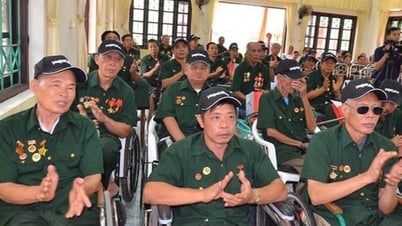

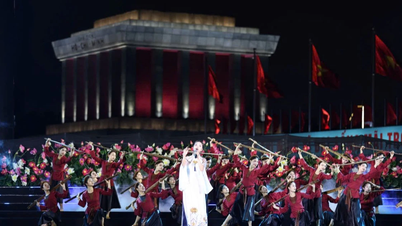

![[Photo] Walking on the royal poinciana flower road in the West](https://vphoto.vietnam.vn/thumb/402x226/vietnam/resource/IMAGE/2025/5/18/f9335355d0744d1593f7e36bc4c7f4b7)

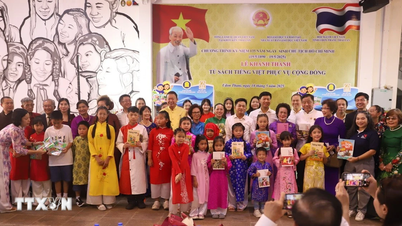

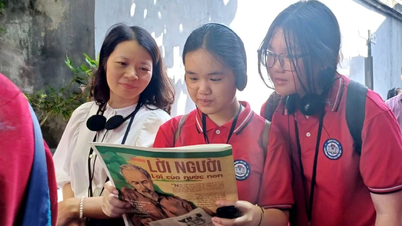






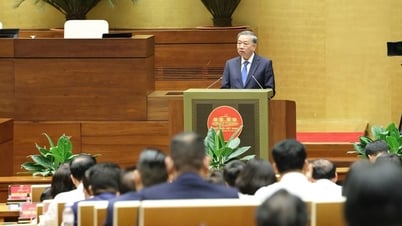
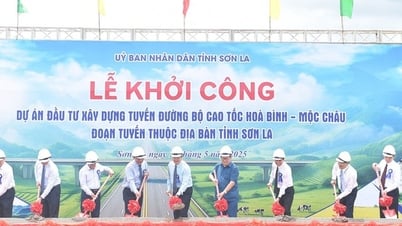

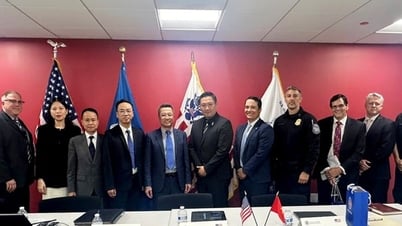



















































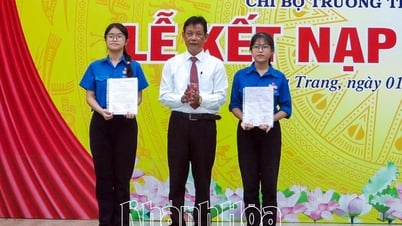
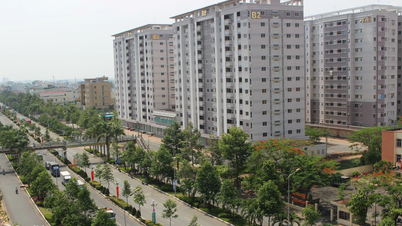












Comment (0)